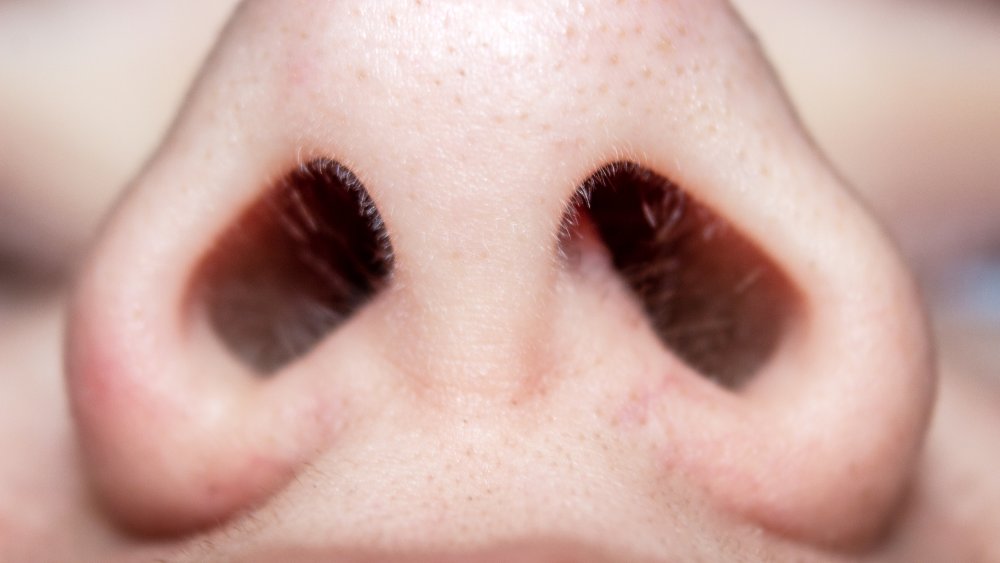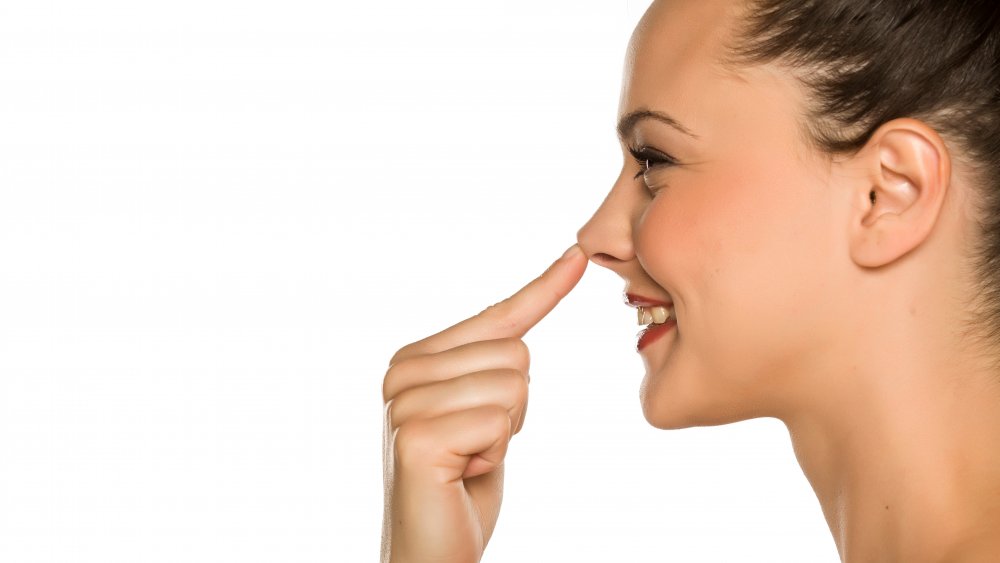You Should Never Pluck Your Nose Hair. Here's Why
Every now and then you get those pesky nose hairs that start to peek out from your nostrils like curious little cats to tickle their whiskers in the wind. And they have become even more tickly now that we have to use face masks every time we leave the house. (You are wearing your face mask, aren't you? You know it's the best way to protect yourself and others during the coronavirus pandemic, don't you?)
Although they can be annoying at times, nose hairs actually serve a vital health purpose. Coated with a thin layer of mucus and as dense as the hair on your head, nose hairs protect us from pollen, dust, germs, and other airborne particles we would otherwise breathe in, thus serving as a first line of defense against allergies, infections, and other respiratory ailments. According to Healthline, people with seasonal allergies who have less nose hair were at a much higher risk of suffering from asthma. Aside from the annoying longer ones that can end up being a fatal distraction on a date or in a business meeting, the nostrils are also lined with microscopic hairs that are called cilia. These tiny little schnoz locks back up the longer, thicker ones in keeping your lungs free of mucus and debris. So even though your nose hair can sometimes get jungly, you've got to hack it away properly in order to avoid anything more serious than a bad first impression.
Plucking nose hairs could cause serious health problems
Here's a bit of trivia to gross your friends out with: according to the Cleveland Clinic, we grow an average of six and a half feet of nose hair over our lifetimes. And that's from each follicle, not an accumulated total. Also, our nose hair gets coarser as we grow older. So let's face it: Nose hair is something we're all going to have deal with all through life. Rule number one of nose hair management: avoid plucking your nose hair at all costs. We know, when you see them sticking out of your snout, it can be so tempting to just pinch them or snag them with some tweezers and pluck them right out, but this is actually much more dangerous than you would think. Completely ripping nose hairs out from the follicle can leave you much more susceptible to things like respiratory infections, allergies, and sinusitis.
But that's not even the worst that could happen. Dr. Julie Russak, an New York City-based dermatologist, told Women's Health magazine that "[i]f a nasal infection were to travel upstream and enter the junction where other veins join, it could pose a serious health risk since it now presents a passage for bacteria directly into the brain." That's right: plucking your nose hairs could lead to bacteria in your brain. So seriously, don't pluck. There are other, safer methods of nose hair management.
Safe ways to keep your nose hair where it belongs
The safest way to keep your nose hairs from showing up uninvited for your dates and other social functions is by simply trimming them back. You can find angled, rounded scissors made specifically for snipping your snout fur, since, as Dr. Russak said, they "are designed at an angle and specifically for trimming these hard to reach areas." Just make sure to clean both your nose and scissors before you start snipping.
Electric nose hair trimmers are also a safe and easy option. These usually consist of a dome-shaped extension that is inserted in the nostril. Rotating blades inside painlessly cut coarse nose hairs down to size without pulling. Laser hair removal is a more long-term solution, but make sure to go with a professional to ensure the best results.
We can't really believe that we have to tell you this, but do not — repeat: do not — put hot wax in your nose. In addition to tweezing, the no-plucking rule also includes waxing. Both of these methods completely remove the hair follicle, leaving the nose and other body parts wide open to the possibility of a dangerous infection. So while it may be tedious to keep up constant maintenance of your nostril fuzz, it's for your health. Just remember: it's more than just your reputation that's on the line.


